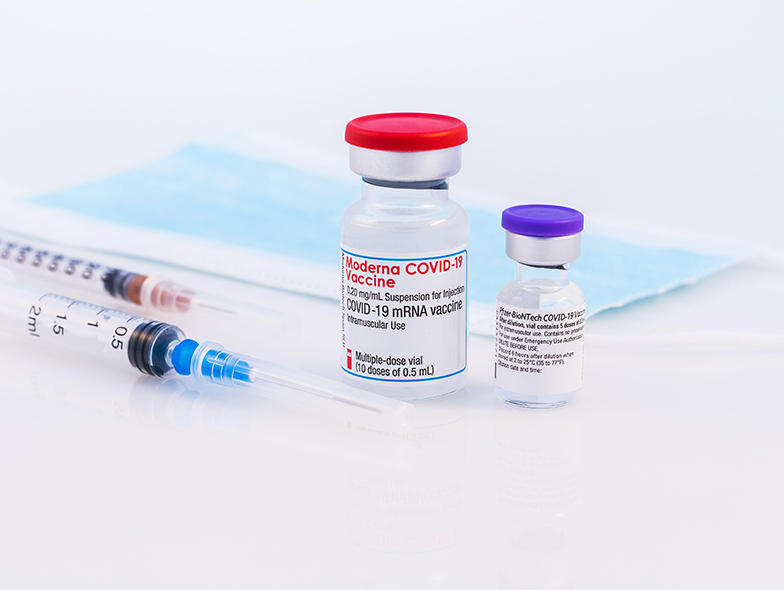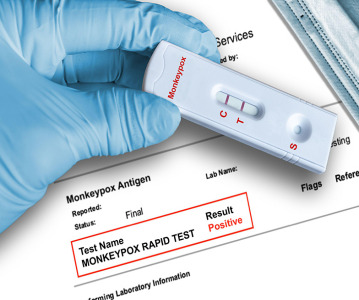EMA starts rolling review of Moderna’s Omicron-targeting vaccine, as well as Pfizer-BioNTech rival

The vaccines have been adapted to target the Omicron variant, which has been the dominant variant globally since the beginning of the year
The European Medicines Agency (EMA) has initiated a rolling review of Moderna’s variant-adapted COVID-19 vaccine, which the company says targets the Omicron variant as well as the original strain first detected in China.
The US-based vaccine maker said last week that the so-called bivalent vaccine produced a better immune response against Omicron than the original shot.
The EMA also started a rolling review of the mRNA, variant-adapted vaccine created by Pfizer and BioNTech last Wednesday. A rolling review is a regulatory tool that EMA uses to speed up the assessment of a promising medicine or vaccine during a public health emergency. Here, the regulator assesses the data as it becomes available, and the process continues until there is enough data for a formal marketing application.
Omicron cases have been surging across the world, fuelled by the highly transmissible BA.4 and BA.5 sub-variants. The US Centers for Disease Control and Prevention (CDC) said that these sub lineages make up about 8.3% and 13.3% of cases respectively in the US, as of June 11. BA.4 and BA.5 have also been designated variants of concern in Europe, however the BA.2.12.1 sub-variant remains the most prevalent.
According to a study published recently in Nature, people who were infected with Omicron early in its spread may be vulnerable to reinfection by later sub-variants due to mutations that have developed.
Vaccinated patients with Omicron BA.1 breakthrough infections developed antibodies that could neutralise that virus plus the original SARS-CoV-2 virus, but mutations in the BA.2.12.1, BA.4, and BA.5 sub lineages allow them to evade antibody protection.
Several international bodies have raised concerns over the global relaxation of COVID rules in the last six months, warning that cases are likely to surge again as autumn and winter close in.
In May, the White House announced that America could record as many as 100 million Covid-19 infections in the latter half of this year, while WHO Director-General Tedros Adhanom Ghebreyesus warned the pandemic was ‘certainly not over’.
Related News
-
News FDA approves Thermo Fisher blood tests for wheat and sesame allergies
Both tests have been approved by the US regulator for in vitro diagnostic use -
News QIAGEN launches world’s first syndromic test for monkeypox
The test can distinguish between monkeypox and other diseases that cause similar symptoms. -
News Monkeypox Update: Vaccine shortage, sewage surveillance and global testing
As concern over the monkeypox outbreak continues to rise, we take a look at major developments from the first week of August. -
News CPHI Podcast Series: The importance of novel excipients for innovative drug development
The latest episode in the CPHI Podcast Series dives into the world of novel excipients and explores their importance for innovative drug development. -
News Could nanotech tattoos be the future of health monitoring?
Researchers in South Korea have developed an electronic tattoo that automatically signals potential health issues. -
News Novel method for organoid production and storage to accelerate drug development research
Researchers develop method to produce organoid materials for disease and drug development research. -
News ‘Red flags’ spark concern over validity of key Alzheimer’s research
Serious concerns have been raised about the quality of landmark Alzheimer’s research, undermining commonly held beliefs about the disease -
News Amazon teams up with Fred Hutchinson to launch cancer vaccine clinical trial
Fred Hutchinson is sponsoring the Phase 1 trial, while Amazon are contributing scientific and machine learning expertise
Position your company at the heart of the global Pharma industry with a CPHI Online membership
-
Your products and solutions visible to thousands of visitors within the largest Pharma marketplace
-
Generate high-quality, engaged leads for your business, all year round
-
Promote your business as the industry’s thought-leader by hosting your reports, brochures and videos within your profile
-
Your company’s profile boosted at all participating CPHI events
-
An easy-to-use platform with a detailed dashboard showing your leads and performance







